Transfer Pricing
Transfer pricing is an accounting practice that establishes the price for goods and services exchanged between different divisions within a company. This practice applies to both international and domestic transactions.
Transfer pricing allows companies to determine the prices for goods and services exchanged between subsidiaries, affiliates, or entities under the same larger corporate structure. By setting these prices either above or below the market rate, companies can influence their internal profits and costs. This practice can lead to reduced tax liabilities, creating potential tax savings for corporations. However, tax authorities may scrutinize and challenge these savings.
Companies may use transfer pricing to reduce the parent company’s overall tax liability. They can charge higher prices for divisions in high-tax countries, decreasing profits, while charging lower prices for divisions in low-tax countries, increasing profits.
Multinational corporations are generally legally permitted to use transfer pricing to allocate earnings among their subsidiary and affiliate companies within the parent organization. However, some companies may misuse this practice by manipulating their taxable income to reduce their overall tax burden. This transfer pricing mechanism enables companies to shift tax liabilities to jurisdictions with lower tax rates.
Transfer pricing rules apply when there is a tax incentive for mispricing in a transaction.
The “arm's length principle” for tax purposes means that the terms and conditions of transactions should remain consistent, regardless of whether the parties are related or at arm’s length. For example, transactions between a parent company and its subsidiaries are subject to transfer pricing rules. Applying the arm's length principle generally involves comparing the prices or profit margins of transactions between related parties with those at arm’s length engaged in similar transactions.
Tax authorities generally maintain that transfer pricing should align between intercompany and external transactions. They have implemented stringent regulations on transfer pricing to prevent companies from avoiding taxes.
If tax authorities determine that transfer prices do not adhere to the arm's length principle, they may impose additional taxes and interest on the involved companies.
As a result, financial reporting for transfer pricing must adhere to strict guidelines and is closely monitored by tax authorities. Regulators and auditors often require extensive documentation. If the transfer value is determined inaccurately, the financial statements may need to be restated, which could lead to potential fees or penalties.
A potential way to avoid penalties from transfer pricing adjustments is to maintain contemporaneous transfer pricing documentation.
Transfer prices should be calculated using the appropriate method and be supported by comprehensive documentation.
We draft inter-company agreements that define and price related-party transactions, including cost-sharing agreements.
We offer guidance on transfer pricing in international transactions, profit allocations, reorganizations, and intercompany financing structures.
At Kramer International Law, we provide strategic advice on structuring intercompany transactions and developing transfer pricing methodologies that align with clients' objectives and interests.
Kramer International Law helps clients manage complex compliance requirements across multiple jurisdictions, providing guidance on clear and defensible documentation while safeguarding confidential and sensitive information. This encompasses various areas, including inventory, distribution, service transactions priced under the services cost method, high-value service transactions, licensing and royalty rates, contract manufacturing, cost-sharing agreements, at-risk manufacturing, other trading arrangements, as well as interest rates on loans.
Additionally, we help clients secure advance pricing arrangements to minimize their risk.








International Business Law Firm
Providing international business law services respecting the law of the US, Canada, and the UK
Serving growth companies, startups, and investors
TO CONTACT US:
E: info@kramerintlaw.com
T (US): + 1.347.588.4060, Ext. 1010
© 2025. Kramer International Law, P.C. and Kramer International Law Inc. All rights reserved.


T (Can): + 1.514.470.0717, Ext. 1010
